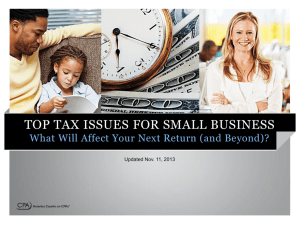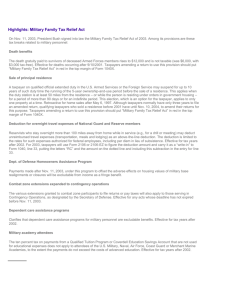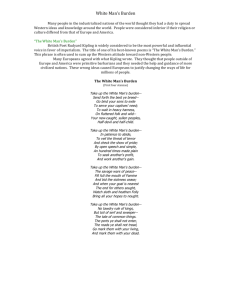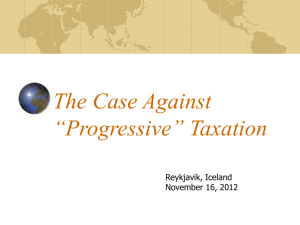The Flat Tax and the X-Tax Presentation to the Tax Reform Panel
advertisement
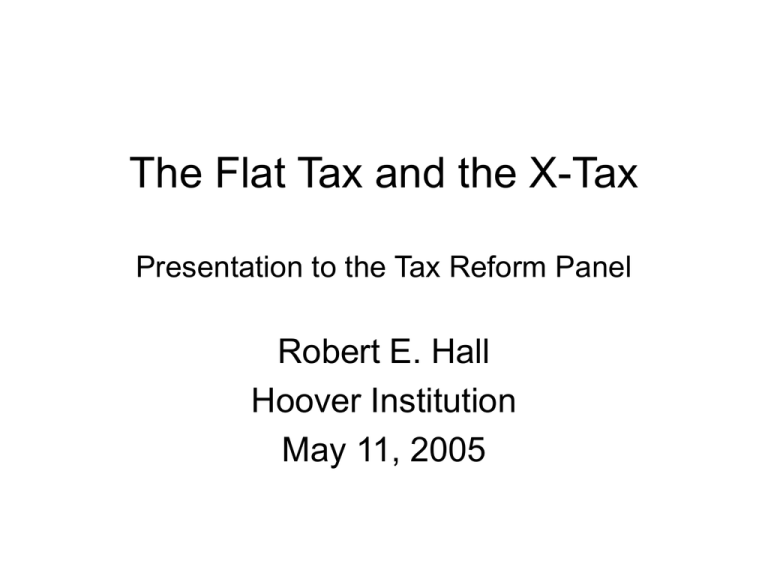
The Flat Tax and the X-Tax Presentation to the Tax Reform Panel Robert E. Hall Hoover Institution May 11, 2005 Basics of the Flat Tax • Individuals and couples file Form 1, which puts a 19-percent tax on earnings above an exemption level, $41,000 for a family of 4 • Families do not pay tax on interest, dividends, or capital gains—these are taxed at the source by the business tax • Businesses file Form 2, which puts a 19-percent tax on business income with a write-off for investment • The two forms together create an airtight 19percent tax on consumption Benefits of the Flat Tax • Provides the right incentive for capital formation, through investment write-off • Simple • Easy to administer—low rate and simplicity reduce evasion • Taxing business income at the source avoids more than a billion Form 1099s and reduces IRS cost • 19-percent rate duplicates revenue from existing corporate and personal income taxes The X Tax • Same structure as the flat tax: simple forms for family and business • But the personal tax has more than one bracket • Business tax rate is the same as the highest personal tax rate • Reduced burden on middle-income families financed by higher business and top-bracket personal rates • Example: 12-percent and 25-percent brackets, with higher bracket starting at $60,000 Comparison Tax $14,000 $12,000 $10,000 $8,000 Flat Tax $6,000 $4,000 X Tax $2,000 $0 $0 $10,000 $20,000 $30,000 $40,000 $50,000 $60,000 Earnings $70,000 $80,000 $90,000 $100,000 Distribution of Tax Burden • Under current taxes, some high-income taxpayers pay huge amounts of federal income taxes, while others pay little • Burden on the lower half of the income distribution is light • The flat and X taxes would even out the burden across high-income taxpayers • The burden on lower- and middle-income families can be adjusted by the exemption in the flat and X taxes and the brackets in the X tax Steps toward the Flat or X Taxes • Move toward taxation of business income at the source – Lower personal taxation of dividends and capital gains accomplished in 2003 – Push these rates to zero – Reduce and ultimately eliminate business deduction for interest, so this income is taxed at the source – Reduce personal tax rate on interest, ultimately to zero Steps toward the Flat or X Taxes • Simplify the personal tax – Because of the AMT and generous standard deduction, few taxpayers actually deduct state and local income and property taxes—good time to remove this deduction – Phase out most other complications – Taxation of business income at the source makes the AMT and many other provisions of the personal tax unnecessary

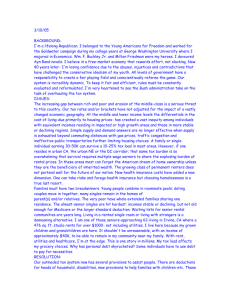
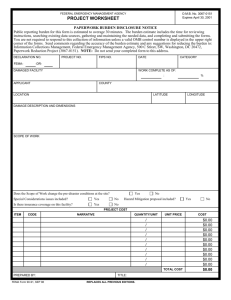
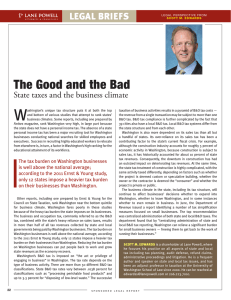
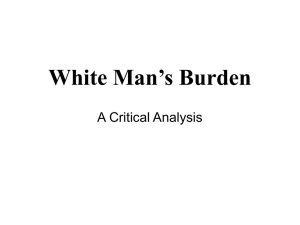

![-----Original Message----- From: Rod Panter [ ]](http://s2.studylib.net/store/data/015586647_1-a21eaed299447ae775ba9a595fa342ab-300x300.png)

